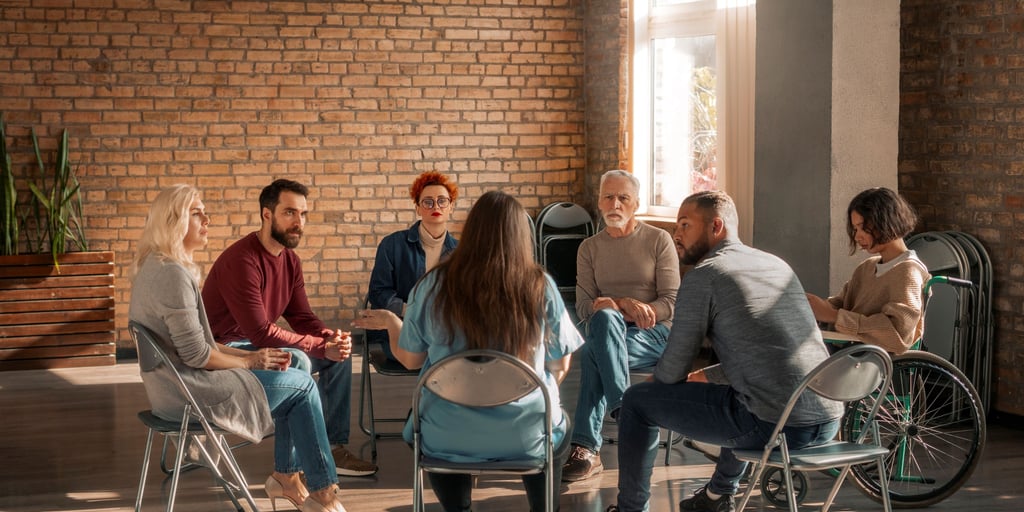My OCD - Joining a Mental Health Support Group for the First Time
I had my first experience of joining a support group for adults with OCD. I only wish I had done it sooner.
OCDSUPPORT GROUPPURE OMENTAL HEALTH
Ren
11/22/20242 min read


This week I had my first experience of joining a support group for adults with OCD. I only wish I had done this sooner.
As a sufferer for over 30 years (and I use the word ‘sufferer’ because I’m not going to put a positive spin on the nightmare that is OCD), I have been alone, isolated and felt ashamed of my thoughts and inner sensations. For a long-time I didn’t know that I had symptoms of OCD, I just knew I was bad, and no amount of checking my body and mental gymnastics could prove otherwise.
Years of feeling suicidal and trapped in a body and mind that I loathed came to a head after a break-down that resulted in a visit to see a psychiatrist 20 years ago. I went to the appointment dreading that they would react with disgust and judge me critically. Instead, he mumbled something about OCD.
What I had told him was that I had persistent thoughts and worries about being a terrible person, which related to my identity and fears of who I was attracted to.
I had spent years of lonely torment worrying and feeling ashamed throughout school and college. There simply was no real guidance available on OCD without compulsions, and even after I received a diagnosis I wasn’t provided with any support, advice or therapy that addressed my issues.
'they don’t call OCD the ‘doubting disease’ for nothing.'
More recently the information online and in books about 'Pure O' OCD, has vastly increased and awareness of Harm OCD, Arousal OCD, and other sub-types that cause us to repeatedly question and check our bodily states has grown massively. This has helped me immensely along with psychotherapy; my OCD has become more of a background noise; I am triggered less and without the same intensity.
But as OCD sufferers all know, they don’t call OCD the ‘doubting disease’ for nothing. It sneakily flares up and periodically morphs into something else; and there is always a niggling suspicion that your worst fears are true.
It is often lonely to have these struggles, and it impacts on my ability to engage with others, make and keep friends. My other obsessions also mix into my panic disorder and agoraphobia, endlessly repeating tales of scary outcomes when I am away from home. It certainly zeroes in on the things you value most, which for me includes my ability to trust myself, be independent and a good person.
Joining a group for people with OCD without the ‘classic’ overt compulsions was like discovering a long-lost family. I had found people who spoke my language and understood the struggle and pain that I carried inside of me. My eyes filled with tears when I heard for the first time other people speaking of experiences that I could really relate to.
OCD sometimes makes you feel like you have a dirty secret, but this was a place where you could be open without the fear of being judged for thinking the worst things about yourself.
'I kept thinking why didn’t I do this earlier? And maybe it wasn’t the right time, or maybe I was just scared.'
If you are feeling cut off from those around you because of your mental health, or any problem really, I would urge you to find a peer group online or locally to meet up with others, share and listen to other people’s experiences. I kept thinking why didn’t I do this earlier? And maybe it wasn’t the right time, or maybe I was just scared.
I am so glad I gave it ago and I look forward to the next meeting.
